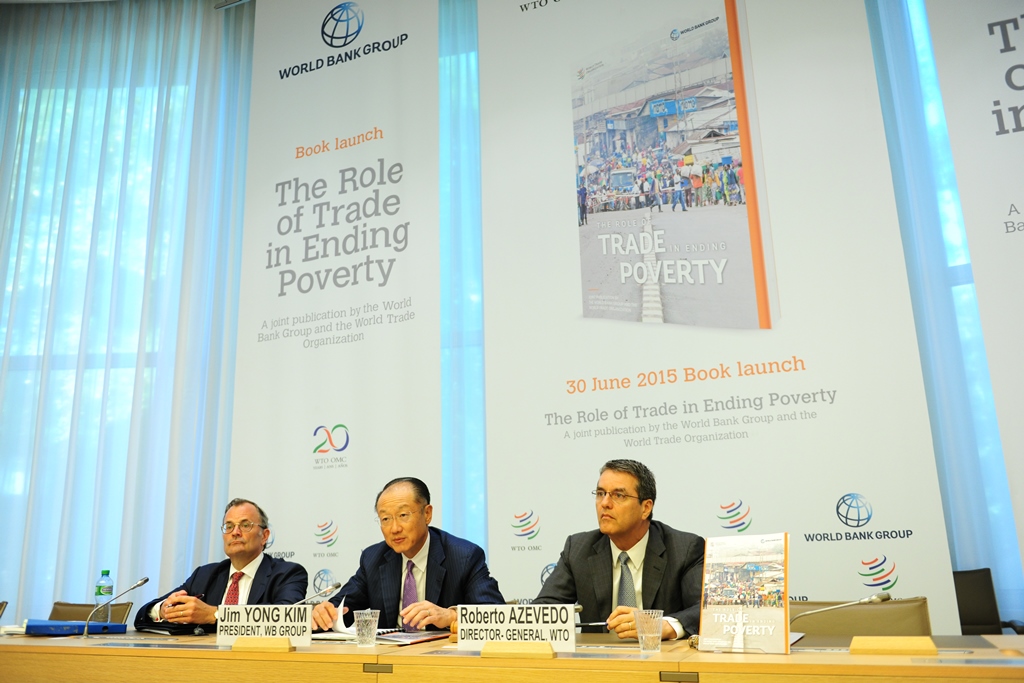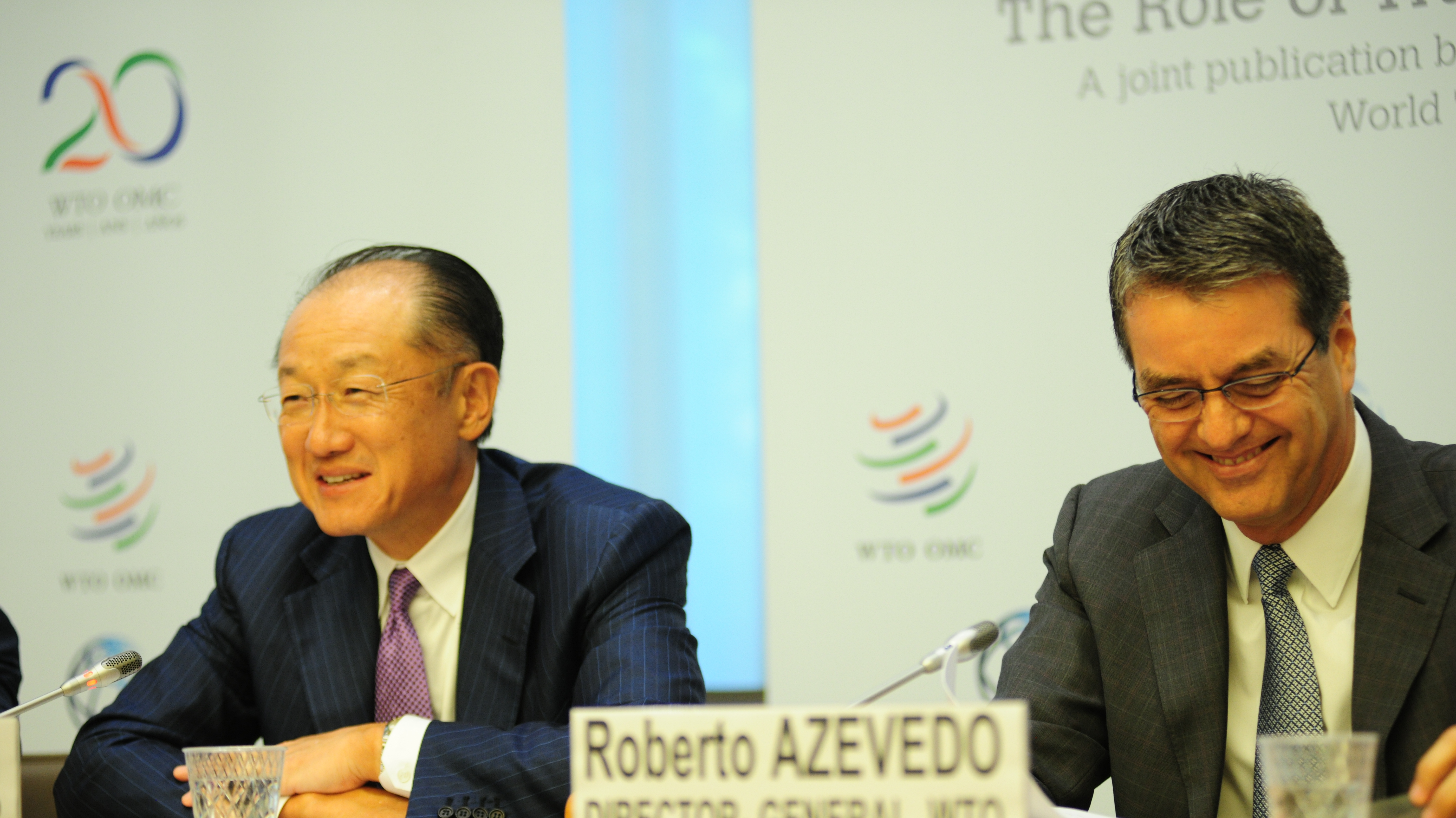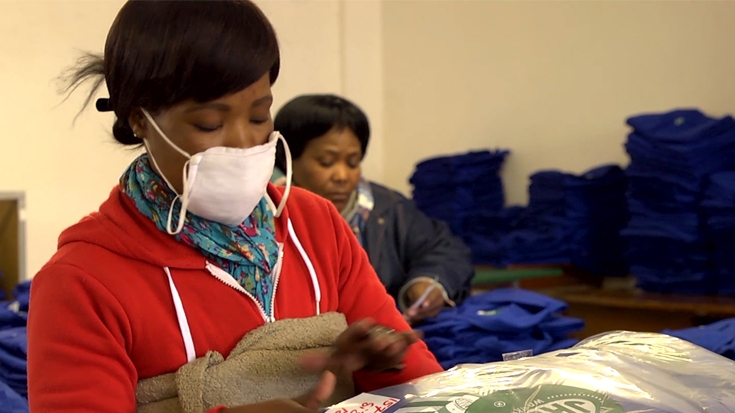On June 30, 2015, World Bank Group President Jim Yong Kim co-launched a joint report with Director-General of the World Trade Organization (WTO), Roberto Azevêdo, entitled “The Role of Trade in Ending Poverty.” Speaking immediately prior to the opening of the WTO’s Fifth Global Review of Aid for Trade, Dr. Kim emphasized the critical role that trade plays in in driving private sector-led growth and job creation, particularly in developing countries. Azevêdo also highlighted that “in the countries where the poor live, trade costs continue to be high” and that “just providing trade opportunities is not enough to help the poorest.” He stressed that governments and multilateral institutions must help finance local programmes that connect entrepreneurs to markets. Dr. Kim also shared that this report is just one part of the World Bank Group’s collaboration with the WTO. In addition to the Aid for Trade Initiative, the WBG plans to address information gaps on trade and poverty by establishing improved indicators for tracking trade costs that most affect the poor. “When we work together, the WTO, the World Bank Group and other partners can have a major impact on ending extreme poverty,” he said. “We must continue to work with all of you to put our global knowledge at your service so that trade facilitates inclusive growth. If we succeed together, we will become the first generation to end extreme poverty in the world.”



